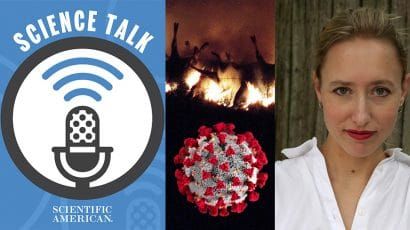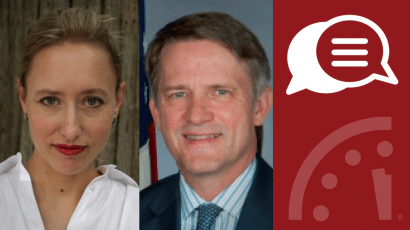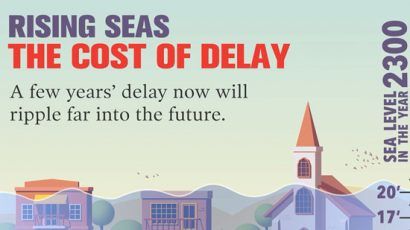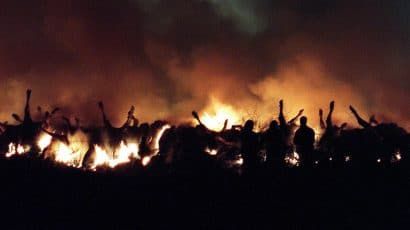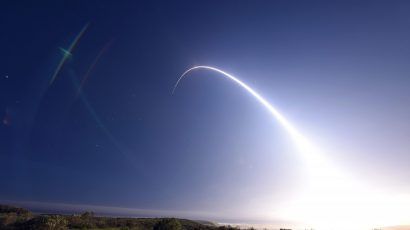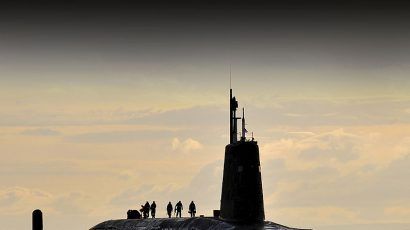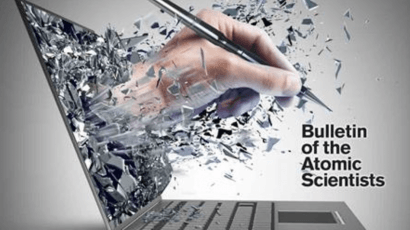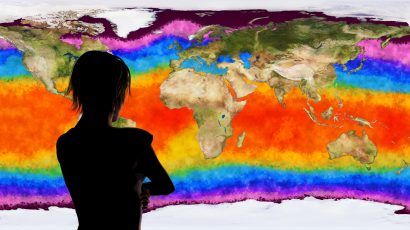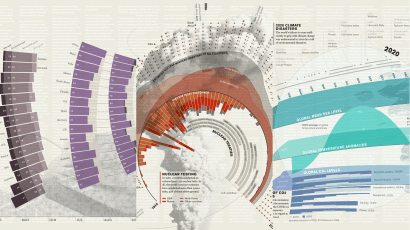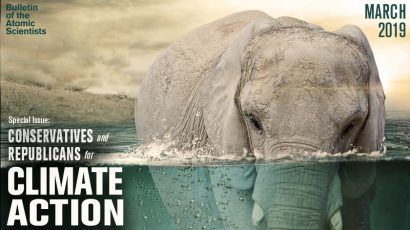Search results for Elisabeth Eaves
Elizabeth Eaves joined the Bulletin as columns editor in 2013 and subsequently was a contributing editor. Previously Eaves was a columnist at the tablet newspaper The Daily, where she also launched and edited the opinions page. From 2006 to 2010 she worked as a writer and editor at Forbes magazine, where in 2008 and 2009 she … Continued
On biolabs and pandemic risk: Listen to Scientific American’s interview with editor Elisabeth Eaves
Hear from contributing editor Elisabeth Eaves on the risks of building high-containment biolabs, and what she saw reporting about them for the Bulletin.
Watch now: Why is America getting a new $100 billion nuclear weapon?
Watch the February 24 Bulletin virtual program, "Why is America getting a new $100 billion nuclear weapon?” featuring Thomas Countryman, Elisabeth Eaves, and moderated by Katrina vanden Heuvel.
Bulletin Virtual Program: Why is America getting a new $100 billion nuclear weapon?
Join Elisabeth Eaves, Thomas Countryman and Katrina vanden Heuvel, as they discuss Eaves’s newest Bulletin piece “Why is America getting a new $100 billion nuclear weapon?” Together, we will consider whether huge investments in nuclear modernization are advancing US national security. Register now. Speakers Thomas Countryman Thomas Countryman is Chairman of the Board of the … Continued
Resilience and the climate threat, guest-edited by Alice C. Hill
In early February, the Trump administration unveiled a $1.5-trillion infrastructure plan that has received criticism on several fronts. Chief among the complaints is a lack of planning for civil and infrastructure disruptions resulting from extreme weather and a changing climate. But the Trump administration isn’t unique in this regard: studies indicate that governments around the world underinvest in infrastructure resilience by at least 70 percent. But what do we mean when we say “resilience?” And who benefits from efforts that do exist?
Hot zone in the heartland?
The new coronavirus has plunged us into an infectious-disease crisis. As we respond, the years-long debate over N.B.A.F. raises worrying questions about American biodefense policy. Will more bio-labs help us fight outbreaks? Or are we building too many labs in too many places?
Why is America getting a new $100 billion nuclear weapon?
The reasons for the United States new intercontinental ballistic missile—the ground-based strategic deterrent, or GBSD—are historical, political, and to a significant extent economic. Many people in the states where the new missile will be built and based see it as an economic lifeline. Their elected officials take campaign donations from defense companies, to be sure, but are also trying to deliver jobs in a political environment that has been hostile to government spending on anything but defense.
Home After launch test
Read the 2019 Clock statement By Bulletin Science and Security Board | Doomsday Clock Overview of Doomsday Clock By Bulletin Staff | Doomsday Clock FAQs about the Clock By Kennette Benedict | Doomsday Clock Missed it? The 2019 Clock announcement, on video By Bulletin Staff | Doomsday Clock CNN OpEd, by Jerry Brown and William … Continued
What a MERS outbreak taught South Korea, why kids draw the coronavirus, and more: The best disruptive tech stories of 2020
Throughout the cataclysms of 2020, the Bulletin, its expert contributors, and its staff produced excellent work. Here are a few stories that are among the best we produced within the category we call disruptive technology.
The 2021 nuclear year in review—with five enduring stories
Here’s a quick recap of the 2021 nuclear year in review, plus five nuclear stories published in the Bulletin this year that we expect to endure for years. The final story ends on an optimistic note—because even those focused on nuclear risk should be able to dream.
“Pandemic” author Sonia Shah
The Bulletin interviews the science writer on the Zika virus, novel pathogens, and how to prevent our next epidemic of disease.
Best of the Bulletin, 2018!
The Bulletin aims to bridge the gap between true experts and lay audiences by publishing articles that are meaningful in the Kremlin, at the Pentagon, and around the kitchen table. Content that engages, illuminates, and informs. Explore the best of the Bulletin from 2018: An unsettled year in nuclear weapons John Mecklin Six memorable climate change pieces from 2018 Dan Drollette … Continued
Expert opinions of 2013
A selection of the Bulletin’s best opinion columns of 2013, emphasizing exactly what you expect from us: a careful blend of deep thought and fine writing.
Best of the Bulletin, 2021: Beyond words
The Bulletin spent much of 2021 looking at existential threats—literally.
New story published in partnership with The New Yorker
The Bulletin of the Atomic Scientists is proud to announce a partnership with The New Yorker magazine about the future of biodefense research labs in the United States. Well-run high-containment laboratories are crucial to advancing our understanding of new diseases and pandemics, including pathogens like Ebola, Zika, and the novel coronavirus. Animal disease research labs study zoonotic diseases–those that can … Continued
Analyzing the Helsinki summit
Analyzing the Helsinki summit The meeting and subsequent press conference between Donald Trump and Vladimir Putin in Helsinki, Finland has been largely met with shock and anger, but will there be any lasting impact? Explore our coverage of the aftermath, and suggestions on where we go from here. Putin’s wish list does not include destroying … Continued
Special Issue: Conservatives and Republicans for climate action
The March/April issue is available! Polls make it clear that the American public as a whole, including a majority of Republicans, accepts the science of climate change. Still, congressional Republicans aren’t eager to agree. In the March magazine, the Bulletin talks with Republicans and conservative Christians who do support climate action about how they reconcile their politics with the scientific reality … Continued
Silicon Valley defense contracts will really hit ‘em where it hurts
Won't someone please think of the shareholders? The tech industry’s controversial defense contracts may soon cost them.
Six essential stories on the origins of COVID-19
The Bulletin has produced several important stories on the origins of COVID-19. Here are six of the best.
Sam Nunn on the Nuclear Security Index and slowing progress on safeguarding nuclear materials
Former US Senator Sam Nunn, co-architect of the Nunn-Lugar Act, talks to the Bulletin about his organization’s new Nuclear Security Index and the upcoming Nuclear Security Summit.

